In Review: ‘The Smashing Machine,’ ‘The Lost Bus’
This week's fact-based dramas feature Dwayne Johnson and Matthew McConaughey fighting fires both figurative and literal.
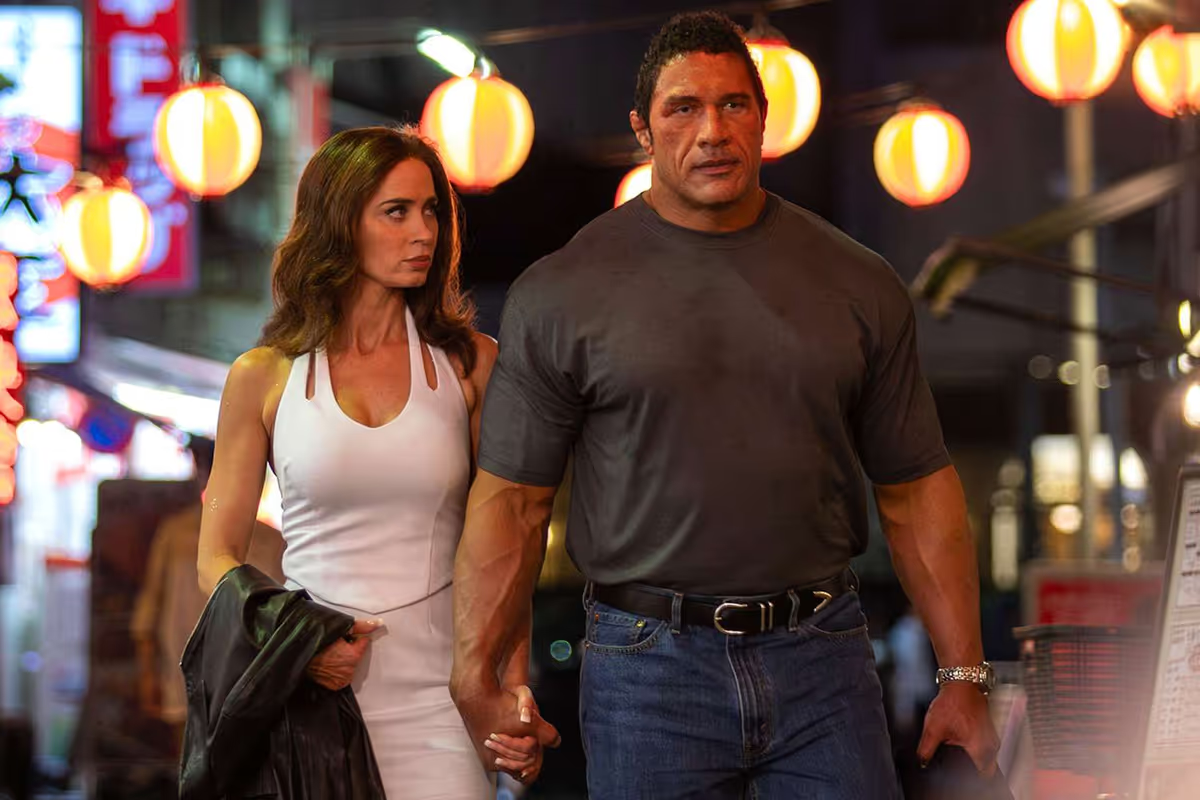
The Smashing Machine
Dir. Benny Safdie
Dir. 123 min
The final stretch of Benny Safdie’s The Smashing Machine takes place at the Pride Grand Prix 2000 Finals, a mixed martial arts competition staged in Tokyo. It’s not exactly the fight-to-the-death tournament seen in Enter the Dragon but it’s not entirely unlike it, either. To win, a competitor must endure a punishing tournament in hopes of being the last man standing and earn, in a phrase we hear repeatedly, the “life-changing” purse of $200,000. That’s not a sum to scoff at in 2000 or now, but it’s worth noting that just 18 years later, fighter Conor McGregor could boast of taking home something in the ballpark of $50 million for a single fight against Khabib Nurmagomedov. The Grand Prix’s competitors in 2000 were the biggest stars in a universe that was soon set to expand at a breathtaking pace.
But not yet. Inspired by a 2002 documentary of the same name, Safdie’s film depicts three eventful years in the career of MMA pioneer Mark Kerr, played with disarming tenderness by Dwayne Johnson. How disarming? In the film’s opening scene, the disconnect between the brutal images depicting Kerr’s one-sided victory in his debut at the World Vale Tudo Championship in Brazil and the gentle voice describing them to a reporter after the fact feels dizzying, even when the voice is discussing, in the nicest way possible, feelings of unquenchable bloodlust. There’s not a trace of the bravado Johnson usually brings to a performance, either on film or as a professional wrestler. This would be a transformative performance even without the hair topping his head.
The Reveal is a reader-supported newsletter dedicated to bringing you great essays, reviews and conversation about movies. If you are not paid subscriber, we would love for you to click this button below and join our community.
Unfortunately, Safdie’s film doesn’t make the narrative housing that performance compelling or create space for Johnson to develop the character into more than just a gentle giant battling some personal demons. As Kerr’s success grows within the MMA world, so does his dependence on painkillers, particularly after suffering a loss, a development he considers unfathomable. (A later change to a “no contest” outcome does little to stop him from reeling.) And as that dependence deepens, so do Kerr’s troubles with his girlfriend Dawn (Emily Blunt). Dawn hates Kerry’s addiction but discovers that she’s just as uncomfortable dealing with her partner’s sobriety after he leaves rehab. That The Smashing Machine portrays their relationship as, by all appearances, being beyond redemption would be to its credit if it didn’t essentially make Dawn the bad guy, a choice not helped by an unusually broad Blunt performance.
Though working without his brother Josh for the first time, Safdie retains the glossless, immersive style of the films they made together yet the oddball dark humor and chaotic energy appear only in flashes. Though the film’s rarely dull, it’s hard not to wish there were more scenes like the one in which the sober Kerry annoys Dawn by explaining the importance of proper cactus maintenance. Adhering to Kerr’s real-life story allows Safdie to skirt clichés, but it’s really only Johnson’s memorable characterization that suggests Kerr’s story had to be told. —Keith Phipps
The Smashing Machine opens nationwide tonight.

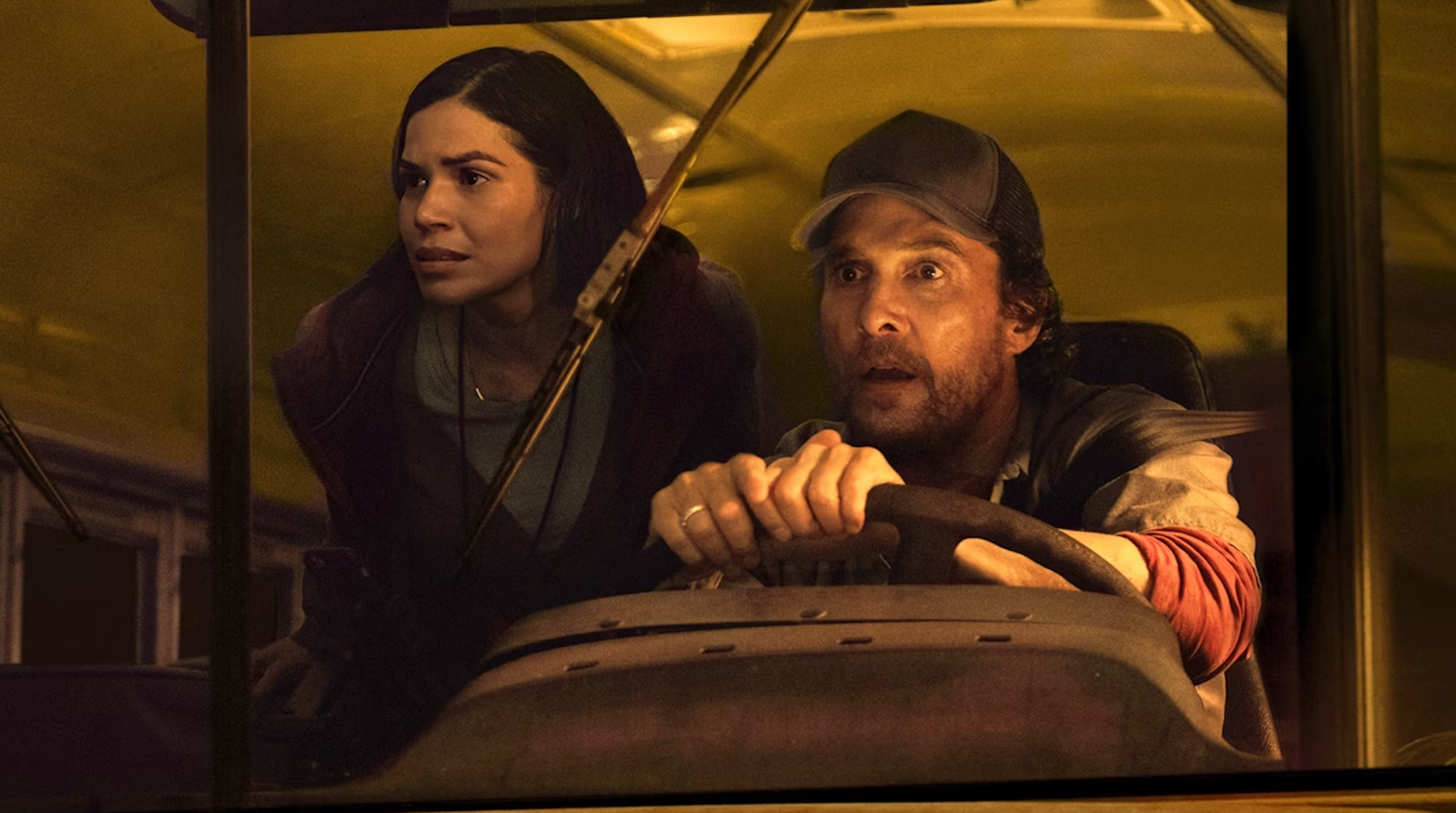
The Lost Bus
Dir. Paul Greengrass
130 min.
With the exception of his three Bourne movies (The Bourne Supremacy, The Bourne Ultimatum and Jason Bourne), which still had more of a toe in political reality than a spy-thriller franchise like James Bond, director Paul Greengrass has come to specialize in docudramas that bring real-world events a shaky-cam verisimilitude. Greengrass’ best films, like Bloody Sunday, United 93, and Captain Phillips, are exceptionally detail-oriented and almost sneakily cinematic, with his head-down commitment to the facts acting like a cover for good old-fashioned filmmaking zip. Though he’s capable of strong character work—Tom Hanks and Barkhad Abdi play fully realized adversaries in Captain Phillips, for one—Greengrass puts a premium on a you-are-there immediacy that doesn’t necessarily require much psychology. The event itself tends to be enough.
The downside of Greengrass’ brand of heightened realism is that anything overtly contrived in his films becomes conspicuous. And that’s the main issue tugging away at The Lost Bus, a startlingly visceral treatment of the 2018 Camp Fire in northern California, the deadliest wildfire in the state’s history. It’s hard to imagine a more potent on-the-ground re-creation of the event, which Greengrass covers from multiple perspectives, ranging from first responders and firefighters to ordinary people simply trying to survive. At the same time, it’s also not hard to imagine Shelley Winters from The Poseidon Adventure turning up with her swimming medal, ready to perform another rousing and heart-rending act of self-sacrifice. In other words, old-fashioned disaster-movie clichés are not exactly transcended here.
Adapted from Lizzie Johnson’s non-fiction book Paradise: One Town’s Struggle to Survive an American Wildfire, The Lost Bus offers a likable stock character in Kevin McKay (Matthew McConaughey), a down-on-his-luck single father who’s at odds with his teenage son and struggles to look after his disabled mother. (The son and the mother are also played by McConaugheys, Levi and Kay, respectively, so two docu-realist points for that.) As a school bus driver, Kevin begs his dispatcher (Ashlie Atkinson) for more hours to help make ends meet and he winds up getting more overtime than he bargained for when a wildfire starts spreading around the area. He’s given the simple assignment of transporting 22 schoolchildren and their teacher, Mary Ludwig (America Ferrara), from their classroom to another location out of harm’s way, but the fire gets to their destination faster.
Greengrass could have allowed The Lost Bus to unfold entirely from Kevin’s narrow point-of-view, but the film wisely opts to step back and cover the official response to the Camp Fire, too. As Ray Martinez, the Cal Fire battalion chief who tries to strategize around an increasingly desperate situation, Yul Vazquez doesn’t have the backstory given to McConaughey, but his character suggests how unnecessary it is to have one. Watching professionals do their jobs is where Greengrass seems fully in command, because he can train his camera on those crucial decision-making moments when, say, Ray has to consider whether saving lives is a more important priority than fighting the fire. Finding out whether Kevin’s son is still going to be a pill after all this is significantly less compelling.
Yet The Lost Bus sustains a feeling of dread, if not outright panic, throughout two hours of escalating, overwhelming crisis. Greengrass and his cinematographer, Pal Ulvik Rokseth, keep returning to a diabolical trick where the camera itself seems to be pushed by the heavy winds that spread the fires across the brittle, bone-dry grasses, accompanied by a menacing hiss on the soundtrack. There is a palpable sense of people who are utterly at the mercy of a blaze that’s sealing off every exit and defying evacuation efforts. The film indulges in the Speed-like fantasy that a skilled and intrepid bus driver can blow through the inferno, but that’s Hollywood. The Lost Bus is convincing enough to expose its own nonsense. — Scott Tobias
The Lost Bus is currently in select theaters. It starts streaming on Apple TV+ tomorrow.


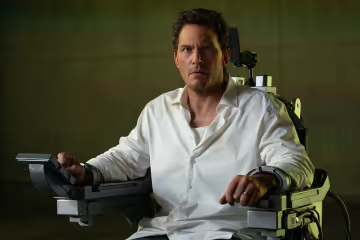
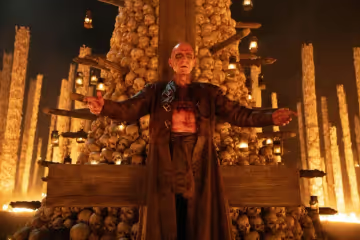
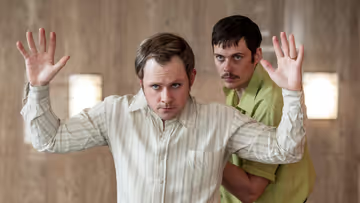
Discussion